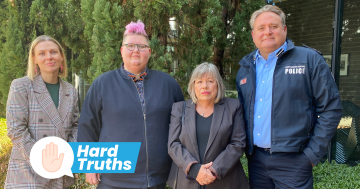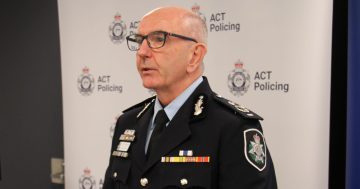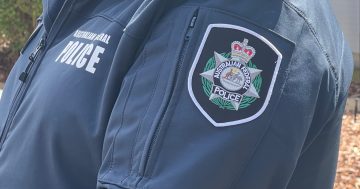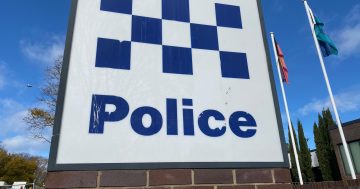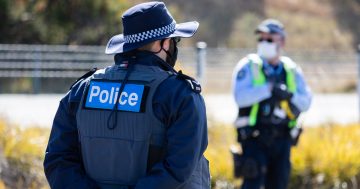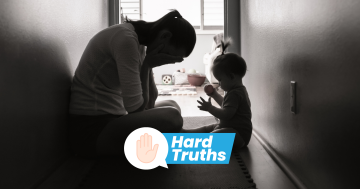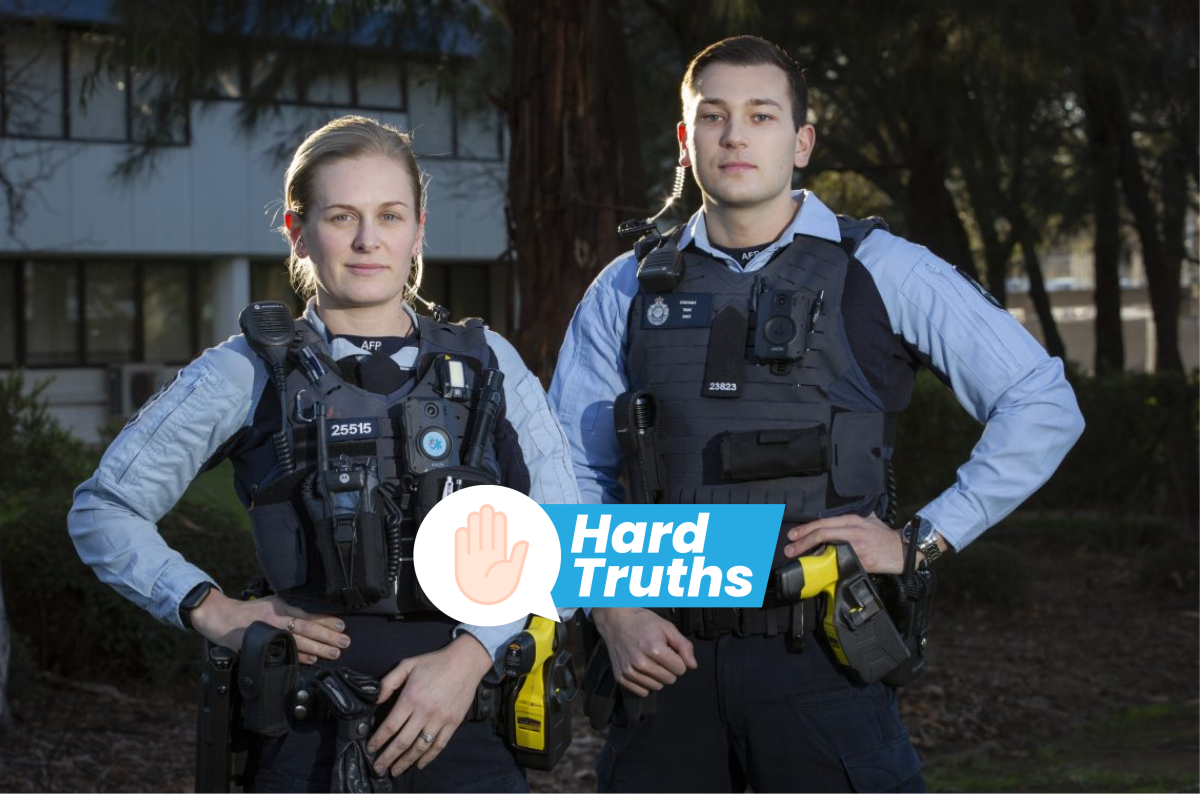
General duties officers across the Territory are all trained to respond to family violence situations. Photo: ACT Police Media.
The statistics say it all: more than a quarter of Canberra women over the age of 18 have experienced some form of violence by a family member or partner since they turned 15.
And one in five (25.7 per cent) have been subjected to some form of abuse – be it physical, emotional or economic – by a cohabiting partner.
That’s according to the latest personal safety data from the Australian Bureau of Statistics (ABS).
While the numbers only include rates of violence against women, it shows just how persistent family violence is in the ACT.
ACT Policing Family Violence and Vulnerable Persons Unit (FVU) acting superintendent Dave Williams said unfortunately the numbers show incidents are increasing.
“In the last financial year we responded to 4037 family violence incidents in the ACT,” he said. “Family violence-related assaults have gone up by 12 per cent, while 44 per cent of all assaults in Canberra were related to family violence.
“That’s about 11 family violence incidents per day that police are responding to.”
There are numerous reasons that could explain why the numbers have increased: population increase, community education and more reporting.
But police believe other factors such as the rising cost of living pressures, lack of affordable housing, lack of affordable childcare and other social drivers are causing stress to relationships.
The FVU’s formation was triggered by the murder of Tara Costigan by her ex-partner in 2015, one day after she had applied for a protection order.
The recent coroner’s report into her death noted significant changes had been made in the outcry following her death, including the creation of the unit, as well as changes to processes and support for victims of family violence.
“Most significantly, victims of family violence who report family violence to police are assisted to make application to the Magistrates Court for interim family violence orders, rather than being referred directly to the Court to seek their own order as Ms Costigan was,” Coroner PJ Morrison noted in his findings.
Members of the FVU review every job involving family violence that has been attended by police to ensure the right support services have been engaged and there are enough follow-ups in place, as well as training other officers in recognising family violence, assisting the government with policy, and doing their own work targeting recidivist and higher risk offenders.
FVU acting sergeant Caleb Boxx said due to the high number of family violence calls police received, there was also an emphasis on making sure officers didn’t become numbed by the constant exposure.
“I had my own bias and my own perspective when I started in the Family Violence Unit … [but I’ve learned] in every single situation where we have repeat calls for service, it’s never simple, it’s never easy,” he said.
“By the time the physical violence occurs, generally the person has already been controlled to such an extent that they’re not able to leave – mentally, emotionally or even financially.
“So to place that burden or expectation on the victim to just leave, when they’ve been coerced and controlled and bullied, harassed and intimidated to the point where police are involved, it’s not really fair to expect that person to leave.”
FVU first constable Laura Bailey said the team visits all stations regularly and follows up with refresher training delivered by community services who help victim-survivors to ensure they’re addressing the bias that could be present in officers.
She said it was about having an “eyes wide open” approach to every situation and realising the trauma that people in these situations were experiencing.
“The training package is called ‘the whole story’, and it’s literally [teaching officers] to not just focus on what’s happened today, but looking at their life and what’s impacted them, what’s got them to that point,” First Const Bailey said.
It appears that training is making a difference on the frontline, and could be another reason why more family violence incidents are being picked up by police.
“What I have noticed changing in the past few years [in law enforcement and society] is definitely more of a focus on the perpetrator, changing their actions, rather than the victim being blamed for staying in the relationship,” Gungahlin Police Station senior constable Bec Carnell said.
The change in language from ‘domestic violence’ to ‘family violence’ has also shown society that partners aren’t the only perpetrators, and so the situation can’t necessarily be solved by someone leaving.
“I had one person who was from [another country] and she had no support, he had taken her passport, she had children, so she told me she can’t leave,” Gungahlin Police Station constable Tom Richardson said.
“It is not black and white, there is so much grey in the middle.”
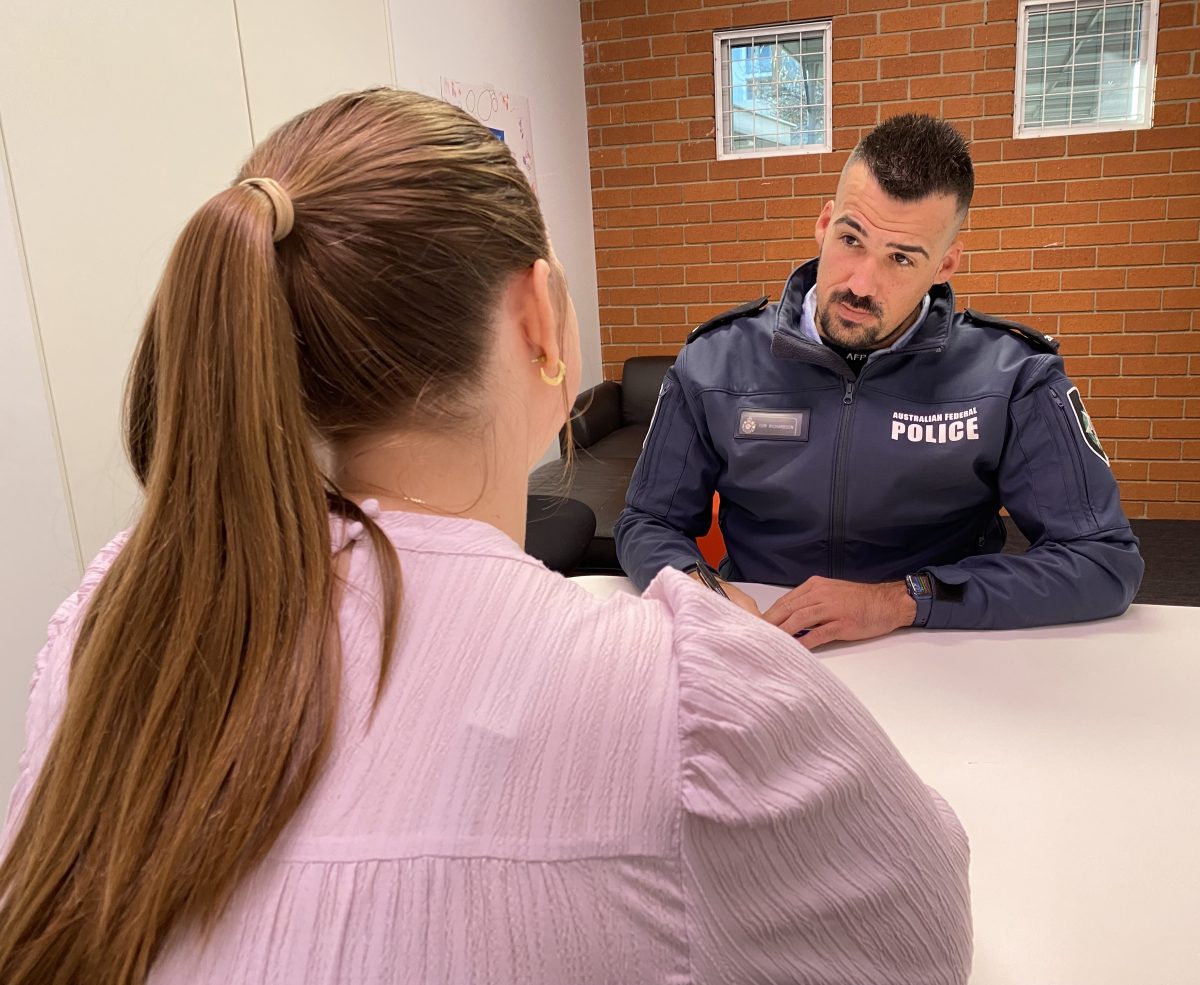
Police are often only called when family violence issues hit a crisis point. Photo: Claire Fenwicke.
But police are bound by the law and are usually only called when things have escalated to a crisis point.
They’re asking the community to also step up to help combat family violence at every level of society – not just in the home.
“Part of that is standing up and recognising when it is wrong, and speaking out about it,” Const Richardson said.
One aspect police are encouraging is getting to know your neighbours, and recognising the signs that family violence could be occurring behind closed doors.
“If you saw smoke coming from your neighbour’s house, you wouldn’t wait until you saw fire, you’d call the fire brigade … if you think someone needs help, call,” Act Sgt Boxx said.
“Let’s not just ignore it until it becomes a crisis for police – you could potentially stop that by a conversation, by a referral, by engaging early.”
The ultimate message: never be afraid to call.
“Family violence is everyone’s business, and it’s good when somebody calls and lets us know what’s happening,” Snr Const Carnell said.
If you or someone you know is experiencing family violence, you can contact the Domestic Violence Crisis Service on 6280 0900 or the Canberra Rape Crisis Centre on 6247 2525.
In an emergency, call Triple Zero on 000.












